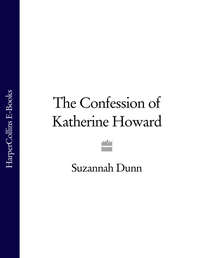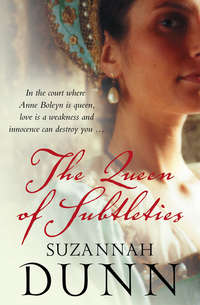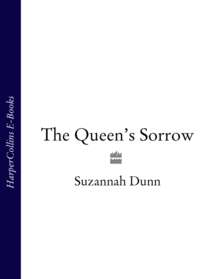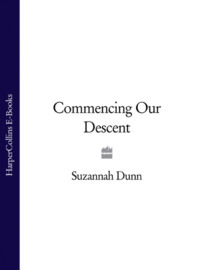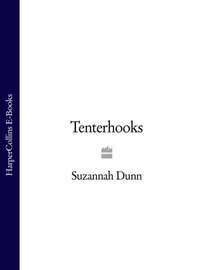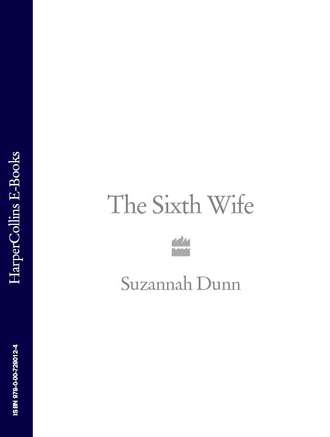
Полная версия
The Sixth Wife
Well, we’d see about that, wouldn’t we. ‘Next time.’ A second groom staggered away with Kate’s saddle and gold-tassled, crest-embroidered saddlecloth. I handed over my own horse and began removing my gloves.
‘Elizabeth’s coming to live here,’ Kate added, ‘did I tell you?’
‘No. No, you didn’t.’Was my wariness audible?
She enthused, ‘She’s a good girl, you know, Cathy.’
Well, to be honest, I didn’t know. All I knew of Elizabeth was that she was thirteen, had the Tudor-rose colouring and was clever. That’s what Kate said: very, very clever. Kate had great hopes for her. Couldn’t bear to think of her shut away in some country house with any so-so tutor. Nor did she like her having to do all that kneeling at her brother’s feet on her rare invitations to court. Elizabeth was very much looked down upon by her sister Mary, too. Of Henry’s three children, Elizabeth was definitely the poor relation. Which was, of course, down to who her mother was. But Kate had been working on Mary. It disturbed me, Kate’s bond with Mary. I don’t like catholics at the best of times, but Mary’s fervour feels to me like something else altogether. Like grief, in fact. As wilful as grief. But Kate was friends with everyone and, anyway, she and Mary had been at school together. Now Kate was telling me, ‘I said to Mary, Elizabeth’s incredibly bright.’ Well, that was a good move, because Mary would hate to think of any clever girl going uneducated; I’ll say that for her. Kate was saying, ‘I said, she needs to study here with Jane.’
Little Jane Grey. ‘Jane’s all right, is she?’ Earlier, I’d unwittingly made the mistake of asking Jane if she’d be riding with us. Her expression had been one of incomprehension as she’d declined and shrunk away, presumably to lessons or prayers.
‘Oh, Jane’s Jane,’ Kate said, diplomatically, with one of her wide-eyed twinkles.
Jane Grey: that tiny, serious girl, top-heavy with brains. Jane must have been so pleased to be at Kate’s. I’d had nice parents, if rather absent, but Jane’s situation was the opposite: parents not nice, and far too present in her life.
Walking from the stables, I puzzled over Elizabeth’s impending move into Kate’s household. Because there was something I knew about Elizabeth, wasn’t there: something that Kate didn’t seem to know. That Thomas Seymour had, only months ago, been pursuing her. But, then, I reminded myself, he’d left her alone, hadn’t he. Kate was the one he’d married, and as quickly as possible. So perhaps I should give him the benefit of the doubt. Perhaps it had always been Kate for him. After all, Elizabeth was way out of his reach and surely he couldn’t have ever seriously imagined otherwise. Council would never have stood by and let him marry her, and he’d have known that, wouldn’t he. He must have known that. Anyone would know it. Perhaps, then, sensibly, he’d been covering up his interest in the king’s widow. In that way, it made sense, his play for Elizabeth. It was the only way it made sense: Elizabeth as red herring.
Four

A week or so later, when I was back home, Thomas’s brother turned up at my Barbican house. ‘Cathy,’ he said, and gave me a cold kiss on the cheek, somehow both diligent and absent-minded. Offered a drink, he requested warm milk and I suppressed a smile: England’s most powerful man, sipping warm milk. Bella fetched our drinks and a bowl of roast almonds, and Ed and I spent a while exchanging the usual pleasantries and making enquiries after family and mutual friends. Not Kate or Thomas, though: my best friend, his brother. Notable absences. Looming absences.
Presumably there was something that he felt would be best said if and when we were alone. So, I suggested a stroll in the garden. I’d probably have suggested it anyway because Ed is rather dull – he’d take no offence at my saying so, it’s something he seems to cultivate – and half an hour in his company is improved by there being something else to look at. Even a wintry garden. He hunched himself back into his luxurious cape and down we went to the terracotta-tiled terrace, then further down into the garden. At the bottom of the steps he launched in with, ‘My brother’s a bloody fool.’
So much for no one knowing.
He explained that he’d learned the news from the little king, who’d learned it from Thomas himself.
‘No one’s supposed to know,’ I said.
Ed’s smile was a sneer. ‘Thomas doesn’t keep secrets about his own good fortune.’
I asked how little Eddie had taken the news.
‘Thinks it’s nice: his favourite uncle and his beloved stepmama.’ Then he dropped the sneer and worried, ‘It’s just…too soon,’ touching his forehead as if placating a pain. His velvet cap didn’t disguise that he was more grey than when I’d last seen him, which was only weeks ago. No longer greying, but grey. The same thick, sleek head of hair, though.
‘Yes, I know.’
He gave an apologetic shrug: of course I knew. But then a double-take: ‘Did you…?’ You didn’t know beforehand, did you?
‘No! No. I’d have told her…’Told her what exactly? Any number of things. I voiced my doubts, or, more accurately, my incomprehension: ‘It’s not just that it’s too soon, is it. It’s that it’s him.’
He stopped, almost smiled.‘But I thought you’d have been all for that.’
‘For what?’
‘Marrying “for love”.’ He handled the words with a show of reluctance but it was clear that he enjoyed saying it. Probably the biggest thrill he’d had in ages.
I’ve never made any secret of my opinion. And if anyone fails to understand quite why I object to arranged marriages, a good start would be to have a look at Ed’s wife. Nasty piece of work. Or, indeed, look at Ed himself: pallid and shadowed.
‘It helps,’ I said, sarcastically,‘if both parties feel the same.’ We walked on, alongside joyless, brittle lavender.
‘So, you don’t think my brother is in love with Kate?’
‘Do you?’
Wearily: ‘I suspect he’s up to his usual tricks.’
I brushed my fingertips against a rosemary bush – the dusting of flowers, tiny knots of brightest blue – and enjoyed the sting of its deep, dark scent in the air. ‘What was all that with Elizabeth?’
‘Exactly what it looked like, I should think: an attempt to marry a princess.’
‘Has there ever been any other interest in women?’
He admitted, ‘That’s what puzzles me. If it wasn’t too premeditated for my brother – who’s nothing if not impetuous – I’d suspect he’d been waiting for the princesses to grow up. We’re lucky that his faults don’t include being Catholic.’ Mary would never have him.
I said, ‘It’s Kate who’s the mystery here, though, isn’t it. Not Thomas. What is Kate doing, marrying Thomas?’ Sensible Kate. Probably the most sensible woman any of us have ever known. Strong-minded Kate, though: it did fit, in that respect. And Kate who keeps her own counsel, likewise.
Ed nodded. ‘It’s Kate I’m concerned for. You know that.’ He was fond of Kate; she was his kind of person. ‘It’s not that I’m objecting to their being married. In fact, there’s probably no one I’d rather have as my sister-in-law -’ He stopped, gave me a look that meant Besides you, of course, although he didn’t mean it – he thinks I’m trouble. I laughed, but actually something serious occurred to me. I was remembering how Kate had said cheerfully to me, ‘But I don’t have to explain this to you, do I. You of all people.’And how I’d thought, Yes, but I’m me, Kate, and you’re you. Possibly, just possibly, this was something I’d do: marry someone whom others saw as unsuitable, and marry him quickly because I considered myself in love. Even though I had never, in fact, done any such thing. Had never had to. But Kate? Had I led her astray? By giving her ideas? She’d been the one giving me ideas, all my life: that’s how I saw our friendship. It felt odd to me that it might be the other way around, for once.
As we walked past my sunless sundial, Ed broached something else: ‘If there’s an heir soon, there’d be a question as to whose,’ and he clarified, unnecessarily, ‘Thomas’s, or the late king’s.’
‘Ed, there hasn’t been an heir in all these years. She’s been married three times since she was fifteen. To men who’d already had children, so there was nothing wrong with them’
He checked: ‘So, she isn’t…?’
‘Is that why you came here? Not to talk this over – two friends putting their heads together, concerned for a mutual friend – but to try to press something out of me?’
His turn now to take offence. ‘No. No. Don’t bite my head off over this.’ He sighed. ‘It’s genuinely that I don’t know what to think. Don’t know what to make of this.’
‘Yes, well,’ I said, ‘that makes two of us.’
Five

I went a couple of weeks later, at Kate’s invitation, to dine with the newlyweds. This was to be it: Thomas’s formal introduction to me as Kate’s husband. No point in my putting it off; every point in getting it over with while making as little as possible of it. It had to be done. When my barge drew up, it was Elizabeth – unmistakable hair of Tudor gold – who greeted us. She just happened to be sitting on the riverbank steps. Holding a lute. Beneath her scarlet, ermine-edged cloak was a gown of deepest, plushest black; beneath that, a kirtle in cloth-of-gold. Oh, very picturesque. How had she managed to slip away alone, unattended? The gems on her hood’s border winked as she stood to give me a huge smile – ‘Hellooo!’ – but those Boleyn-black eyes searched my face. I was careful to show just as much enthusiasm as we chatted. You want to know why I distrust Elizabeth’s familiarity? Because it’s calculated. Those scanning eyes. Oh, I understand why - she’s spent her life on the outside, special to no one – but that doesn’t mean I have to like it.
Her standing back from all the bustle of mooring and unloading our barge gave the unfortunate impression that she owned the place. ‘Oh, well,’ she said eventually and offered up her lute, raised her faint eyebrows. ‘Already late for my lesson.’ Watching her go, I did soften a little. Because there was also something genuine there. Excitement. She was obviously pleased to be at Kate’s. Understandably. Quite something, it was, to be taken on by Kate.
It was something, though, to which her elder sister was objecting: this I discovered a little later, when Kate came with me to my room. Her old friend Princess Mary was refusing all contact with her, she confided dolefully. ‘Doesn’t like my having married Thomas so soon.’ So soon after her father’s death. She shrugged, helpless. It crossed my mind to say, I’m sorry to hear that; but then it crossed my mind that I wasn’t. I was pleased; it was a relief. That friendship of Kate and Mary’s was unfathomable to me. Mary is from the dark ages.
It was predictable that she’d have voiced an objection: she’s famous for her sense of protocol, as well as for her horribly complicated relationship with her father. Understandable, the latter: think of his adoration of her as his precocious little princess, then his savage rejection of her along with her mother before he welcomed her – minus dead mother – back into the fold. Poor Mary never knew whether she was coming or going, whether she loved him or loathed him. Her confusion persists and she’s touchy on the subject, to say the least. I don’t like her but even I’d say that, given how her father treated her, she should be dancing on his grave.
‘She’ll come round, I think,’ Kate said, cautiously. We could speak freely; my two ladies, Joanna and Nichola, were reacquainting themselves with Kate’s; Kate and I could barely hear each other over all the chatter. Bella had gone to the laundresses with my gown, which had snagged on something when we’d disembarked.
‘And Elizabeth herself has no problems with your having married Thomas?’
‘No, none. Although Mary suggested she should have. Wrote to her and said it’d be best if she didn’t live with me.’ Kate permitted herself a wry smile. ‘Well, you can imagine. Elizabeth knows her own mind. She answered to say she’d be staying.’ Now, a burst of enthusiasm: ‘Elizabeth loves it here, you know. And I love having her here, Cathy. She’s a real joy to have around. Such a clever, grown-up girl; it’s so good to see her flourishing.’
I felt she was going to say, She’s more like a daughter to me than any girl has ever been. Or perhaps, I see a lot of how I was in her. She said neither. But she could have said either. It struck me that I was envious; of which of them, I didn’t know.
I didn’t meet Thomas until we went into the hall for dinner. And then there he was: across the expanse of jewellike tiles with the cavernous fireplace ablaze behind him. Kate took my hand, led me towards him, presenting me to him and getting away with it before I’d quite noticed. He kissed the hand – my hand – and greeted me with just one word: ‘Cathy.’ My own name, yet somehow it made me shy.
When had I last seen him? Five years ago? He was forty now but looked no different from when I’d last glimpsed him. His years of being cut loose from England seemed to have done him no harm at all. On the contrary. In the candlelight, his face looked sculpted, his eyes adamantine and his hair like cloth-of-gold. Impeccably tailored, too, he was, with even the smallest pieces of fabric slashed to reveal, underneath, as linings, fabrics that were just as fine. A performance in itself, how he looked. Kate never stinted on clothing – her gown was cloth-of-silver – and to my surprise they made a good-looking pair that evening.
He was bowed over my hand when he said my name and never during that whole evening did he once look me in the eye. I’ll be frank: it’s not something I’m used to, not being looked at. Ours was an intimate gathering, too, or should have been: just Elizabeth and me at the top table with Kate and Thomas. Jane Grey had gone from evening prayers to bed, having one of her headaches, and all Kate’s ladies and my own two were assigned with Thomas’s men to a separate table which was set at an unusual angle from ours. As was the table for the senior members of the household such as Elizabeth’s governess, the men of the church and the girls’ tutor. Kate’s consort of viols was practically inaudible. Uproar, though, heralded the subtlety brought to our table at the end of the meal: knowing, congratulatory laughter for the sugar-sculpted, goldleaf-tabbied pair of cats – the bigger one presumably a tom – which were arching their backs, rubbing against each other.
For all the supposed intimacy of our table, Kate seemed like a stranger to me. Was it, perhaps, like when a girl sees her older sister with a friend? I wouldn’t know, sisterless as I am, but that’s how I imagine it. A whole new Kate was conjured up in front of my eyes. A Kate who was somehow more than Kate. Not the one I knew, and surely the one I knew was the real one. But this one was so convincing. Pretty much perfect, in fact. Looking back, I suppose I felt as if something was being kept from me and something was being shown to me. I felt betrayed and tolerated and favoured, all at once.
And as for Thomas…Well, Thomas is always Thomas, I’ve learned. That, if nothing else, can be said for him. He was good company, that evening, telling stories and making us laugh, me, Kate and Elizabeth. If you know no better, that’s how he seems: fun. Daring, even, because he tended to tease Kate and this was something I’d never seen. Kate, I realised, had never been teasable. For all that she could do for people, all that she could be, she wasn’t teasable. Not due to lack of humour or humility – she had both, in spades – but because teasing’s for taking, and Kate was a giver. But this, now, from Thomas, she had to sit back and take. I watched her warm to it; watched her rise to it, as required, then submit to it.
Kate wasn’t the only one to fall in with him. Elizabeth and I must share some blame, too. Thomas was a good judge of when he’d taken more than his fair share of time and attention – as storyteller, joker – and that was when, to keep us on an even keel, he’d switch our attention to Kate. That’s what he was doing when he teased her, turning us away from him so that we could return, minutes later, refreshed, ready for more. He was also calling up our affection for her and offering it to her on his terms, in his words alone: Our Kate, our girl, our queen. We were giving up our say in who she was, to us, Our Kate, our girl, our queen. We went along with him. I can see it in retrospect but at the time, as I say, he seemed good company, telling stories and making us laugh. Now I know that’s what Thomas does: he charms; he tells stories. To women.
Six

I don’t remember ever having met Kate; she was always just there. My earliest memories of her are probably when she was thirteen or fourteen, when I would have been five or six. She was the daughter of my mother’s best friend, but more than that, to me, at my age, knee-high and wide-eyed, she was one of a crowd of girls of whom everyone at court spoke with such approval and enthusiasm. Very clever girls, they said. Of course, it wasn’t a crowd, it was a mere handful of girls from a few favoured families. Tall girls, to me, although that might only have been true of Kate and her sister, who did grow up tall. If the Princess Mary was tall, back in those days, she stopped growing, because she’s no bigger these days than a twelve-year-old. Something else: they were all so light-haired. Well, compared to me, they were. That’s what I’d notice: flaxen, auburn and gold tucked into those dark hoods. Perhaps all this makes Kate sound striking. What was striking about Kate, though, if it’s not contradictory to say so, was her plainness. There should be a word for it – striking plainness – but in English I don’t think there is; if there is, I don’t know it. Kate probably would have known a word or expression for it, in one of the four languages she spoke. Fish’s eyes was what came to mind, and still does. It might not sound complimentary, but actually they had an arresting glitter to them, those pale, protuberant eyes of hers.
For all her bookishness, gangliness and pallor, there was nothing off-putting or overawing about her for the five-year-old me. She was never anything but a comforting presence. I’d say that she always made a fuss of me, except that somehow she did it with no fuss at all.
And then she was away, married, and I thought no more of her, I suppose, or not much more; and then I was away, too, and then married and having the boys. My boys were part of Kate and I later becoming friends. She adored them and they adored her.
Now there was Thomas, and Kate seemed to be right about him being good with my boys. They came with me when I next visited Chelsea, for my first visit of a couple of days with the newlyweds, and on the first evening they were gone for hours with him. I don’t remember now what they’d gone to do, but eventually it was close to midnight and they hadn’t reappeared. Having had enough of Elizabeth’s strenuously sophisticated chatter and Kate’s indulgence of her, I made my excuses. The dogs were too sleepy to rise and I made it outside alone. The courtyard was balmy, horse-scented, under a blunted moon and a span of stars.The gardens were what made the old manor so special. Behind me, its roofs were sheathed in moonshine. Ahead, the rosebushes lay in wait, hunkered. Beyond them, at a stone’s throw, was the river, still and silent yet somehow very much a presence, a body of water at ease but vigilant.
Kate had told me that this was how she and Thomas had managed their clandestine meetings: in darkness in her garden. He would ride across the fields from London and the night porteress would admit him. It made perfect sense now: I could imagine it, even though I’d never in my life done such a thing. Before long, I heard the boys’ voices accompanied by a more certain male voice. I crept up on them; but where I’d expected to find them, there was unbroken darkness. It took me a moment to fathom: they were on the ground. Flat on their backs on the flagstones. Stargazing. Thomas was telling my boys about the stars. He’d had years away but under these same stars. Unanchored, star-trailing years during which this immense, peep-holed blackness had had to be his home. I heard how intimately he knew it, every faintly star-brushed corner. How he revered it. Earthbound me, I know so little of the constellations. I stopped at a safe distance, undetected.
It could have been an echo that I was hearing: my boys as little boys again, agog as Charles told them a bedtime story or told them about their day or the days they’d go on to have. Charles had already had families; we were third time around for him, but he never stinted with us. He had the time by then and the patience. I didn’t have much of him – twelve years – but I probably had the best. That’s what I have to remind myself.
What I was thinking, as I stood there in the darkness, was how well my boys had done in their two fatherless years. They’d done Charles proud. Their worries, I knew, were for me, for my happiness, however much I wished it weren’t so. And standing there, listening, was the first time I wondered if I was being too hard on Thomas. Perhaps Thomas, like Charles, had simply chosen to marry the woman he loved and would never waver. That kind of thinking – a forgiving kind – is what happens when you stop in a sparkling darkness and listen to a man showing your babies the stars. I doubt now that I was undetected; I think he knew I was there.
Seven

There’s a myth about Kate: that she found happiness at last with Thomas. Until, of course, it all went wrong. It’s a nice idea but it’s a myth. ‘I’ve always been happy,’ she’d said to me, during that first visit of mine, and was laughing as she said it. She sounded surprised that I’d made the remark, the one that would gain currency over the following months: that it was nice to see her happy at last. I’d succumbed already to the myth. Or perhaps, even – who knows? – I was the first to say it. Myth-making. Not like me; I don’t go in for myths. I can’t think why I said it now, can’t imagine how I’d fallen under that spell, except that’s how it is with myths, isn’t it: they’re persuasive. Myths, spells, lies – all the same, powerful.
This, then, is the truth about Kate, as I know it; this is as close as I can get. She had a happy enough childhood, growing up with a brother and sister, the three of them close. And if her mother wasn’t exactly merry…well, who would be, widowed in her early twenties with three small children? I barely remember Maud but she was, as far as I know, a woman of careful, calculated steps, dedicating the final decade of her life to her children’s education and inheritance. And who does that sound like? Except that Kate failed in the end to follow her mother’s example in one crucial respect. Maud chose to stay a widow.
Maud stayed at court, lodged there with her children and began working long and hard to secure future marriages for her children that would keep the Parr fortune safe. In the meantime, she made a job for herself organising the royal school, a benefit of this being that her own daughters could attend. That’s how Kate had come to have an education fit for Catherine of Aragon’s own daughter. Consider just how good that education had to be. Priceless were those lessons that Kate took alongside Princess Mary from the wonderful Señor Vives. Beebis was what I used to think his name was when I was young, before I realised how it was spelled. Señor Beebis and his glamorous Belgian wife. He was hawkish and sallow but handsome; she was big and blonde, with a habit of affectionately cuffing him. They’d both had heavy accents, but different ones. Juan Luis Vives wasn’t only a man of ideas: he had ideas. One of them – a big one – was that education didn’t come from memorising facts but from asking questions. The biggest, though, surely, was that education was for girls. Especially for girls. Because, he reasoned, a woman needed her wits about her. His school was soon world-famous: its pupils, by the age of twelve, debating with lecturers, lawyers and bishops. In those days, the Princess Mary – heiress of England, studious half-Tudor and half-Castilian waif – hadn’t yet turned into plain old Mary Tudor, narrow-minded Catholic.


